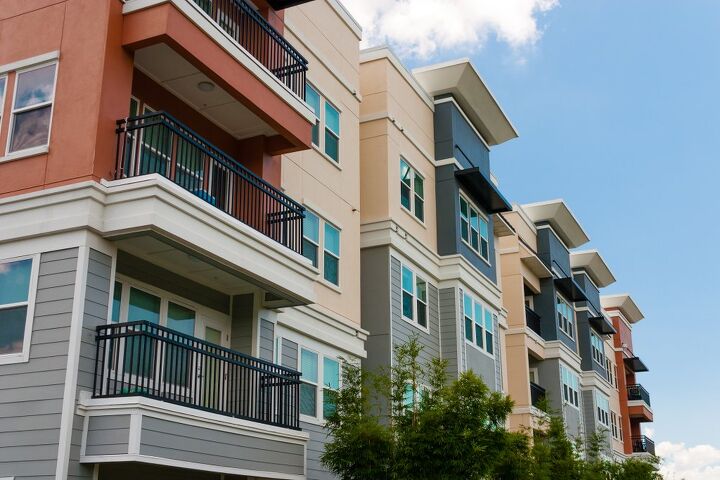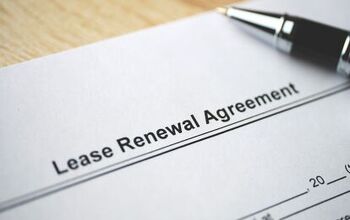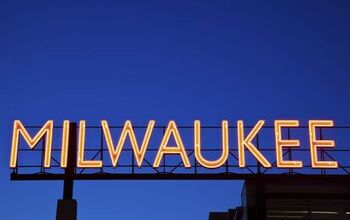Can My Landlord Come Into My Apartment Without Notice?

Apartment living can be extraordinary! Sometimes, it comes with many amenities, including a gym, pool, cabana, movie theater, and many more activities you can enjoy for the cost of your rent. However, because you are renting from someone else, you might have some concerns about the landlord and when they’re allowed to enter your residence. Can they show up without notice?
Your landlord needs to give you 24 hours notice before entering your apartment. You have the right to be there or ask someone else to stand in if you can. However, in the event of an emergency, such as a fire, gas leak, or pest control situation, your landlord has the right to enter the unit without warning or permission.
In this article, we will take you through the nitty gritty of when a landlord can and cannot enter your unit. As a tenant, you have the right to feel secure in your own home. Let’s get started!
Can My Landlord Enter My Residence Without Notifying Me Ahead Of Time?
Usually, it is not okay for your landlord to enter your residence without first notifying you. Typically, your landlord must notify you 24 hours in advance if they plan to visit.
When a landlord shows up in an emergency, such as a broken pipe or a possible gas leak in the building, that is a common exception. In all 50 states, a landlord has the right to enter your home without prior notice during an emergency.
How Much Notice Is Required By My Landlord Before Entering?
If the tenant gives permission, the landlord must offer 24 hours’ written notice before entering the property.
In addition, they can only schedule the visit at a reasonable time of day, ideally not too late at night or too early in the morning. This is done so that tenants can be there when the landlord is on their visit.
When Is My Landlord Allowed To Enter My Apartment?
A landlord is only permitted to enter a rental unit with the tenant’s consent and after justifying their necessity for entry.
This can involve performing a home inspection, finishing the yearly gas safety check, or installing a new washing machine or other appliance, for instance.
Keep in mind that landlords are required by law to maintain a property’s decent condition as well as the functionality of its services and appliances. And to do so, they must be able to enter your apartment and the apartment is part of the overall property.
What Happens If My Landlord Doesn’t Give Me Any Notice Before Entering?
Unauthorized entry into a tenant’s apartment can have serious legal repercussions. If your landlord enters your apartment without authorization on your behalf, you have the right to call the police.
If the landlord was not responding to a crisis, did not give you a written notice, and didn’t approve of this entry, you may be able to press charges for trespassing.
Furthermore, depending on circumstances, you might be able to file a lawsuit for breach or privacy or even harassment depending on the facts surrounding the situation. This is ultimately due to the lease violation.
A quiet enjoyment clause is either stated or assumed in every lease agreement. An unannounced intrusion may breach the tenant’s right to keep undesirable visitors out of the apartment.
When Is Advance Notice Not Required?
Regardless of the cause for entry, landlords often must give tenants at least twenty-four hours notice before accessing their apartments. However, there are conditions in which this might be overlooked, such as:
- Court order for the unit to be vacated
- Regular upkeep due to safety or health concerns
- Emergencies
However, the owner must still identify himself or herself and state the cause for the visit before entering the unit in these circumstances.
Are You Legally Allowed To Refuse Viewings As A Tenant?
If viewings are not stated in your contract, you are not required to let them. However, you might have trouble getting a reference or getting your deposit refunded if you refuse viewings even though your lease requires you to permit access.
Can a Tenant Change the Door Locks?
You are not allowed to switch out the door locks on their apartment unless the landlord first gives permission and meets with you beforehand.
If the landlord grants you permission, you will need to provide them with a spare set to the locks. It’s against the law not to do this, even if you believe your landlord is harassing you. In this event, you’ll need to take legal action and bring them to court for a court ruling.
How Do I Know If My Landlord is Harassing Me?
Harassment occurs when a landlord employs aggressive tactics in an effort to exert pressure or threaten a tenant. Below are a few examples in which a landlord may be harassing you.
If you feel this is happening to you, reach out to an attorney and call local law enforcement:
- Filing a false eviction: A Landlord may attempt to evict a tenant by serving them with a falsified eviction notice. Evictions typically have 30 days’ notice. However, sometimes they might not if the court has you served with official papers and documents. The way to spot a false eviction is if a short notice comes to you by the apartment manager or the company and not an officer or the court.
- Entering your apartment illegally: A landlord typically needs to give the tenant advance notice before entering their home. However, it’s worth noting that there is an exemption for emergencies. Unauthorized entry into a tenant’s property without their consent or prior notice may be construed as harassment.
- Physical altercations: A landlord may use physical intimidation to exert pressure on a tenant. This could involve getting in a tenant’s face, blocking the tenant’s escape from a room, or even placing their hands on the tenant.
- Verbal threats: Whether over the phone, in person, or in writing (such as in text messages, emails, or written letters), a landlord may use their words to scare the tenant. If this is done with intent, this is considered a verbal threat.
- Changing the locks without notice or without providing the tenant a new set of keys: To force a tenant to vacate the property, a landlord may barricade the apartment or change the locks on the entry doors to the tenant’s apartment. They may even go as far as changing the locks on the doors that lead to the common areas.
- Unspecified rent increase: In the majority of states, a landlord must give a tenant at least 30 days’ notice before raising the tenant’s rent. If your landlord is coming to you and requesting even more money, this is a form of harassment, primarily if it’s not written, official, or within 30 days before your next due date.
- Disconnecting utilities without warning: This is a violation of the assurance of habitability, which guarantees renters access to needs like running water, sewage, and heat during the winter.
What Is NOT Considered Harassment By A Landlord?
Landlords are legally permitted to take a variety of actions when it comes to their apartment units. Here are a few things they can legally do:
- Providing you with a notice to quit: If a tenant is breaking the conditions of their contract, the landlord has the constitutional right to send them a notice to stop the behavior. The landowner might have the right to demand an eviction if the renter continues the behavior after receiving this notice. A tenant may need to receive several notices from the landlord before an action can be initiated.
- File for an eviction if the tenant is not paying their rent: If a tenant has not paid their monthly rent, the landlord is legally entitled to petition for eviction. Before attempting to evict a tenant, a landlord will frequently have to serve the tenant with a “Notice to Pay” or a “Notice to Quit”.
- Increasing the rent with proper notice: As long as the tenant receives the appropriate notice, a landlord is permitted to raise the rent by a specific percentage. This gives rent increases in most states 30 days to take effect.
- Access the property during a crisis in which time is of the essence: In the event of an emergency, a landlord does not need to give advance warning to a renter. For instance, if there is a fire inside the building, the landlords can try to check the tenant’s door to see whether anyone is still there.
Wrapping It Up
A landlord must take a few steps before randomly entering a tenant’s unit, especially if it is not an emergent or crisis situation. Expect to receive a notice at least 24 hours before your landlord enters.
If your landlord has failed to provide this and enters your unit anyway, it’s your right to contact local law enforcement and take them to court for trespassing.

Heather is a passionate writer who loves anything DIY. Growing up, she learned everything from home repairs to design, and wants to share her tips with you. When she's not writing, she's usually hiking or searching for her next DIY project.
More by Heather Robbins



























